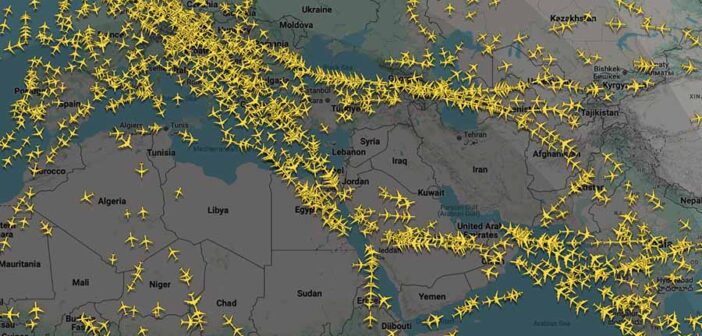Operations at Hamid Karzai International Airport have fully resumed after a two-day internet and mobile phone blackout imposed by the Taliban administration halted all departures and arrivals at the facility.
The outage, which began on 29 September, affected Roshan and Etisalat, the principal telecom providers, and led to the cancellation of nine scheduled flights on the first day, with further disruptions extending into 30 September.
Passengers waited at terminals without access to booking systems or updates, while airlines including Kam Air suspended international routes to destinations such as Dubai and Istanbul.
The Taliban administration attributed the disruption to technical faults in fibre-optic infrastructure, though monitoring groups reported a stepwise disconnection starting in provinces before reaching the capital.
Connectivity returned on 1 October by order of the prime minister, enabling telecom companies to restore services in the late afternoon. Banks reopened, though transactions required manual processing, and aid organisations regained contact with field staff involved in earthquake recovery efforts.
The United Nations mission in Afghanistan noted that commercial air traffic cleared for normal operations on the same day, with initial flights carrying passengers who had accumulated during the halt.
By 2 October, airlines operated partial schedules, with Kam Air confirming resumption of select international services. Flight tracking data indicated that departures to Turkey and the United Arab Emirates proceeded without further interruptions, though some routes faced delays from backlog processing.
The airport authority reported that all runways and navigation systems functioned as required once data links reactivated. Over the following week, daily flight volumes returned to pre-outage levels, with approximately 20 arrivals and departures logged on Tuesday. Cargo shipments, which stalled during the blackout and affected imports valued at several million euro, resumed through dedicated freighters.
Residents in Kabul described streets as quiet during the outage, with shopping centres empty and travel agents limited to in-person advisories. The blackout interrupted remittances, which total around 800 million euro annually for Afghan households, and halted online education platforms used by women barred from formal schooling.
Taliban spokesmen issued no further statements on the incident, and industry sources confirmed that no additional restrictions on telecom services followed the restoration. As of Wednesday, the airport processed over 5,000 passengers, with ticket prices for regional flights holding steady at 150 to 300 euro per leg.
International observers, including the European Union delegation in the region, monitored the situation for impacts on humanitarian corridors, which rely on scheduled flights for supply deliveries. Aid flights from Pakistan and Turkey landed without incident on 3 October, carrying medical provisions delayed by the communications failure.
The Taliban administration maintained that the episode stemmed from maintenance needs, and telecom firms reported stable bandwidth levels thereafter. Passenger manifests showed a mix of business travellers and families returning from abroad, with no reports of overcrowding at check-in counters.
The resumption aligned with broader efforts to stabilise transport links, as neighbouring countries coordinated with Afghan authorities to prevent spillover effects on border trade routes. Euro-denominated contracts for aviation fuel deliveries, interrupted mid-shipment, completed processing by 4 October.
Airport staff processed security clearances manually during the initial recovery phase, transitioning back to digital verification by 5 October. Flight crews, grounded in Kabul and other hubs, returned to rotations, with crew rest requirements met under international aviation standards.
Kabul International Airport, which handles over 100,000 passengers monthly, operates under Taliban oversight since 2021, with private carriers managing most routes.
The blackout marked the first nationwide communications halt since the administration’s formation, though provincial fibre cuts occurred in prior months. As flights stabilised, tourism operators noted inquiries for winter schedules, priced from 500 euro for round-trip packages to Central Asia. The incident drew attention to Afghanistan’s dependence on imported bandwidth, sourced via undersea cables through Pakistan at costs exceeding 50 million euro yearly.
With runways clear and control towers fully staffed, the airport entered routine operations on 8 October, accommodating a Turkish Airlines arrival from Ankara carrying 180 passengers. Ground handling teams cleared accumulated luggage, distributing items held since 29 September. Airlines projected full capacity by mid-month, barring unforeseen disruptions.
The Taliban information department confirmed that no plans existed for future outages, and telecom regulators conducted inspections of network nodes in Kandahar and Herat. Passenger feedback, gathered at terminals, indicated satisfaction with the recovery pace, though some cited losses from missed connections estimated at 200 euro per affected traveller.




